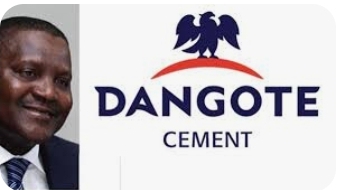In the nine months leading up to September 30, 2023, Dangote Cement delivered a significant 15.2 percent increase in its pan-African volumes, surpassing the results from the same period in 2022.
Dangote Cement’s pan-African volumes represent sales from its plants situated outside Nigeria.
This surge was primarily driven by sales from specific plants, including:
a. Senegal: Achieving a remarkable 66.9 percent increase in sales.
b. Congo: Reporting a substantial 60.5 percent growth in volumes.
c. Zambia: Recording an 18 percent increase.
d. Ghana: Showing a strong growth of 15.5 percent.
e. South Africa: Achieving an impressive 18.5 percent increase.
f. Ethiopia and Tanzania: Both experiencing 6.5 percent growth.
Dangote Cement’s profit before tax rose by a substantial 20.5 percent, reaching N404.89 billion.
Meanwhile, profit after tax increased from N213.10 billion to N277.55 billion, indicating an impressive growth of 30.2 percent.
Arvind Pathak, the Chief Executive Officer of Dangote Cement, attributed these positive results to a combination of strong value proposition, improved operational efficiency, and effective cost containment strategies in the face of rising inflation.
The company achieved double-digit growth in Group revenue, reaching ₦1,514.6 billion, and its EBITDA hit an all-time high of ₦662.8 billion, marking a 28.5 percent increase.
Dangote Cement’s pan-African operations have played a pivotal role, generating record revenue and EBITDA growth of 103.9 percent and 255.4 percent, respectively.
These operations contributed significantly, making up 41.9 percent of Group volumes.
The sustained demand across their countries of operation fueled this unprecedented growth.
Looking ahead, Dangote Cement is near the completion of its 1.5Mta grinding plant in Cote d’Ivoire, following the inauguration of the 0.45Mta Takoradi plant in the first half of the year.
The company’s focus remains on enhancing its value proposition, delivering high-quality cement to its dedicated customers, and exploring emerging opportunities and export strategies in the region to strengthen its overall performance.
Dangote Cement stands as Africa’s leading cement producer with an impressive 52.0Mta capacity across the continent.
As a fully integrated quarry-to-customer producer, the company boasts a production capacity of 35.25Mta in its home market, Nigeria.
Notably, the Obajana plant in Kogi state, Nigeria, is the largest in Africa with 16.25Mta of capacity across five lines.
The Ibese plant in Ogun State features four cement lines with a combined installed capacity of 12Mta, while the Gboko plant in Benue state offers 4Mta, and the Okpella plant in Edo state provides 3Mta.
Through substantial investments, Dangote Cement has successfully eliminated Nigeria’s reliance on imported cement and transformed the nation into an exporter, serving neighboring countries with high-quality cement.
Furthermore, Dangote Cement’s footprint extends to various African nations, including Cameroon (1.5Mta clinker grinding), Congo (1.5Mta), Ghana (2.0Mta import), Ethiopia (2.5Mta), Senegal (1.5Mta), Sierra Leone (0.5Mta import), South Africa (2.8Mta), Tanzania (3.0Mta), and Zambia (1.5Mta).











